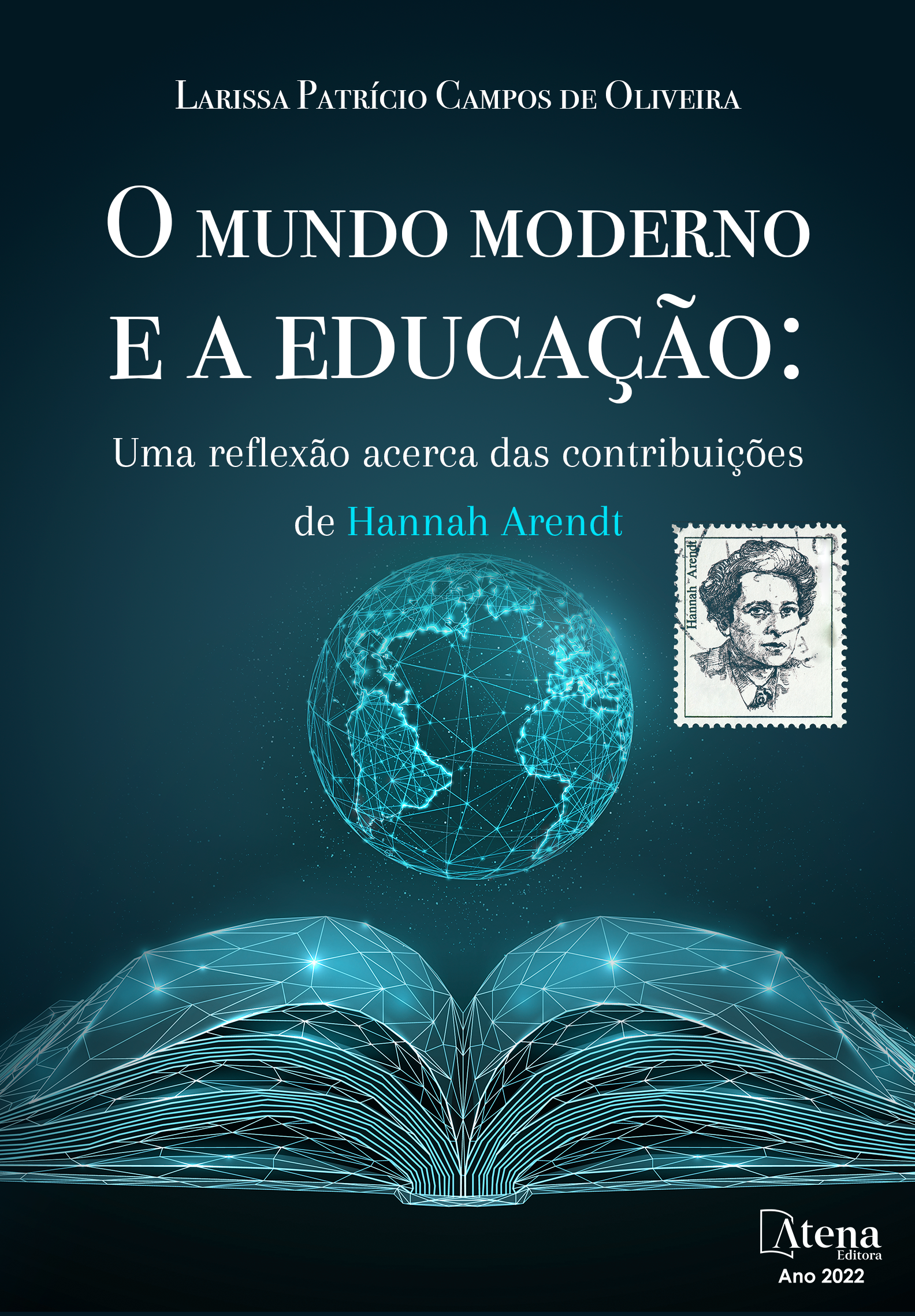
O MUNDO MODERNO E A EDUCAÇÃO: UMA REFLEXÃO ACERCA DAS CONTRIBUIÇÕES DE HANNAH ARENDT
A presente dissertação visa a pesquisar o sentido atribuído pela filósofa judia de origem alemã Hannah Arendt à educação no contexto por ela analisado da crise do mundo moderno, intencionando identificar e aprofundar os conceitos centrais que embasam a autora em suas reflexões. Mergulhando na vasta produção bibliográfica de Arendt, bem como em sua própria biografia e no devastador panorama histórico do século XX ocidental que emoldura a produção de suas obras, buscamos compreender qual o significado da educação para a filósofa e os motivos pelos quais ela afirma estar esta esfera pré-política tão cara e essencial à manutenção do mundo público e comum em uma crise profunda na modernidade. A recusa dos representantes do mundo adulto, pais e professores, em assumir a sua responsabilidade face à natalidade, ao nascimento de novos seres que devem ser introduzidos e apresentados ao tesouro do conhecimento humano produzido pelas gerações anteriores e a nós legado pela tradição, leva, na perspectiva arendtiana, a um deflacionamento desastroso da espessura simbólica que outrora revestia a fala dos docentes nas salas de aula. Com a quebra da tradição na época moderna, fruto dos eventos catastróficos do século passado, e a ascensão no cotidiano escolar de modernas teorias pedagógicas pautadas na psicologia, vemos a autoridade professoral, elemento sine qua non para o ensino e para a aprendizagem, naufragar a olhos vistos.
O MUNDO MODERNO E A EDUCAÇÃO: UMA REFLEXÃO ACERCA DAS CONTRIBUIÇÕES DE HANNAH ARENDT
-
DOI: 10.22533/at.ed.446221808
-
Palavras-chave: Educação; Hannah Arendt; Mundo Moderno; Tradição; Autoridade.
-
Keywords: Education; Hannah Arendt; Modern World; Tradition; Authority.
-
Abstract:
This dissertation aims at investigating the meaning given by German-born Jewish philosopher Hannah Arendt to education in the context of the modern world crisis which she analyzed, and intends to identify and further the key concepts that underpin her ideas. Poring over her vast bibliographical output as well as her personal biography, and the devastating historical scenario of the 20th century in the Western world, which frame her work, the study seeks to understand the meaning of education for the philosopher and the reasons why she states that such pre-political instance, so dear and crucial for the maintenance of the public and shared world, is in such a deep crisis in the modern world. The refusal of members of the adult world, parents and teachers, to assume their responsibility in the face of nativity, the birth of young beings that must be introduced and presented to the treasure of human knowledge produced by previous generations and which we have traditionally inherited, leads, in the author’s perspective, to a disastrous deflation of the symbolic layers that once were associated with teachers’ discourse in the classroom. After the collapse of tradition in modern days, result of catastrophic events in the 20th century, and the rise of modern pedagogical theories based on psychology, it is noticeable that the teacher’s authority, a sine qua non element for teaching and learning, is rapidly disappearing.
-
Número de páginas: 231
- Larissa Patrício Campos de Oliveira


